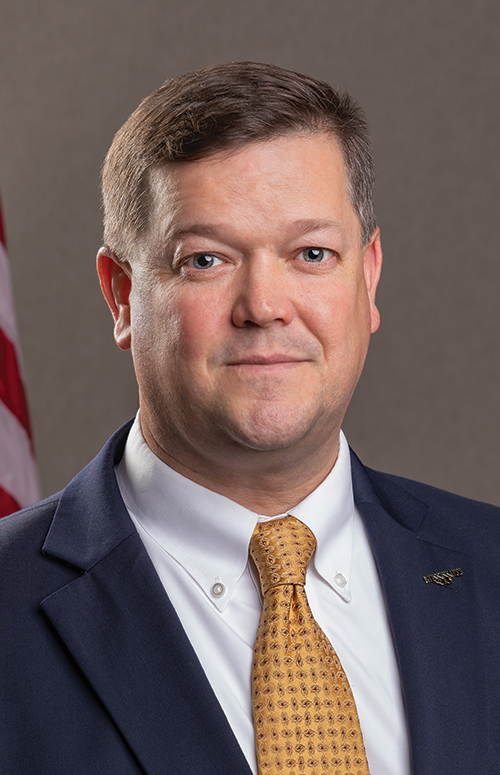As the state’s lead economic and community development agency, the Mississippi Development Authority (MDA), found itself charting unfamiliar waters in 2020. In addition to a change in leadership, the organization was tasked with helping local business stay afloat during a global pandemic, all while continuing to recruit and retain businesses across the state. Thanks to the solid crew at MDA, the state managed to do all that and more.

We recently spoke with John Rounsaville, who was appointed earlier this year by Governor Tate Reeves to serve as director of the Mississippi Development Authority. In May 2020, Rounsaville began his post on an interim basis. In our interview, Rounsaville shared perspective on the lessons learned over the last year, his goals for the organization and the state’s business ecosystem.
As the new leader of MDA, what are some of your biggest priorities for the year ahead?
John Rounsaville: Like all economic development organizations, our mission is recruiting new companies to Mississippi while also retaining and expanding our existing businesses. Through that mission, we share Governor Reeves’ top priority for the state — increasing household income. We are in consistent communication with executives all over the country — and the world — to show them what Mississippi has to offer, and we will continue to do that through better telling our story. We also want to reinforce community development through expansion of existing businesses. Small businesses are the backbone of our economy, and as they grow, so do their communities. Another priority is bringing more visitors to the state. Tourism is one of our top economic drivers. With our natural resources, casino resorts, beaches, culture and history, there is much to see and do in Mississippi, no matter what part of the state people visit.
Of course, the pandemic brought challenges for every state across the country. How would you say Mississippi fared as it navigated the hurdles?
Rounsaville: Mississippi fared extremely well in spite of the pandemic and resulting challenges. In fact, we realized a nearly doubling of new capital investment over 2019. Uniquely, while there weren’t many large-scale projects to compete for, 80% of our wins in 2020 were comprised of existing business expansions. That speaks well for us in that our businesses have recognized great success in Mississippi and, therefore, continue to choose to expand and grow here. I think what really made a difference is our state’s pro-business attitude. Governor Tate Reeves, while taking the precautions necessary, kept Mississippi ‘open for business.’ That decision gave our workers and our businesses confidence to push forward and avoid sitting on the sidelines.
What were some of the biggest announcements of 2020 and 2021?
Rounsaville: We had a number of big announcements in 2020 and so far in 2021. Expansions among our defense industry proved vibrant with Navistar Defense in Clay County adding 500 additional jobs and General Atomics in Lee County implementing an expansion that included 125 jobs and a $40 million investment. Along the Mississippi Gulf Coast, we saw a major investment from Calgon Carbon in Hancock County, with a $185 million investment, and Halter Marine in Jackson County invested $10 million in an expansion that created 100 new jobs.
We’re known for our strategic logistics advantages in North Mississippi, and that kept our distribution sector strong. Associated Wholesale Grocers invested $300 million in an expansion in DeSoto County, and Material Bank made a $15 million investment that created 300 new jobs.
Additionally, we saw great success in our forest products industry. Forestry is one of our state’s top agricultural industries, and we’re extremely attractive due to logistics and incredible level of feedstock. Four new sawmill projects announced in 2020 in Mississippi, and this sector has shown no signs of slowing down.
Highlights for 2021 include Milwaukee Tool’s major 1,200 job expansion in multiple locations in Mississippi and another sawmill location for Biewer Lumber in Montgomery County with a new $130 million facility.
Tell us about some of the things Mississippi is doing to attract more foreign investment?
Rounsaville: Like our competitors, we’re extremely focused on international investment. We’re expanding our efforts in Europe, specifically, and re-tooling our organization to better meet the needs of our international clients and investors. We’ve restructured our foreign direct investment and trade group and brought in a new experienced director. Ultimately, we need to do a better job of telling our story and making sure the world knows about Mississippi’s advantages and capabilities — quality of life, workforce, business climate, and transportation and logistics.
Europe has been a great partner for us, and Continental Tire is just one example. The German-based tire production company has a 5 million-square-foot facility just west of Jackson, representing a $1.45 billion investment. The company has hired 500 employees and plans to hire 2,000 more by 2028.
Mississippi’s strategic location makes it a competitive location for global companies. Our excellent transportation network includes six interstate highways and 14 federal highways; 76 airports, including two international airports; dozens of rail systems that serve 2,500 miles of track throughout the state; and 15 ports found along Mississippi’s three navigable waterways. The Mississippi River borders the state to the west, the Tennessee-Tombigbee Waterway borders the state to the east, and the Gulf of Mexico forms Mississippi’s border to the south. Mississippi boasts two deep-water ports along the Gulf of Mexico, allowing companies convenient, quick access to international markets.

